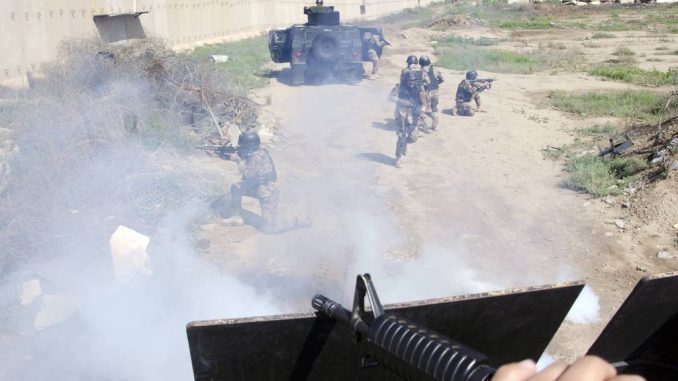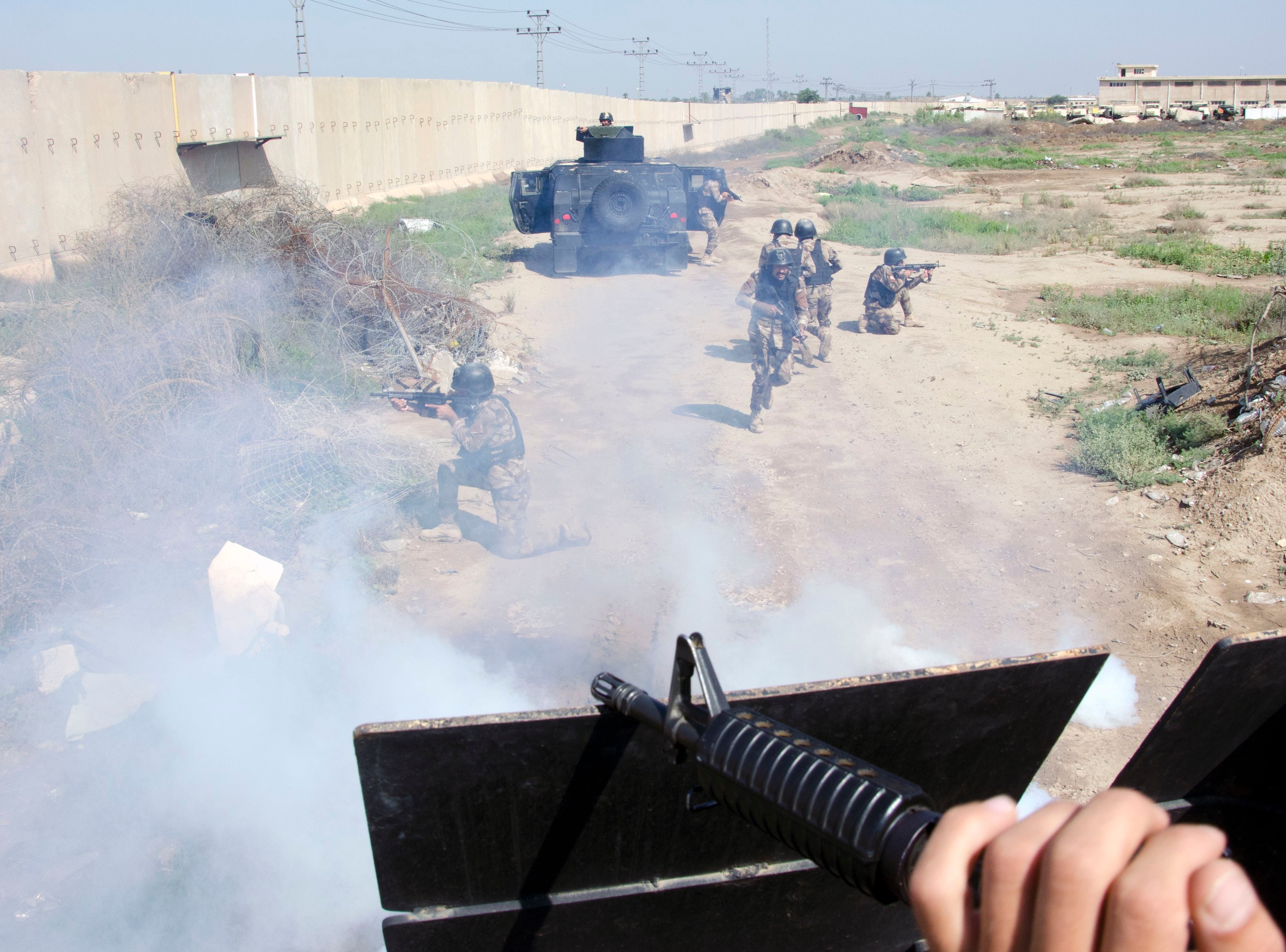

To address evolving regional threats and streamline its command and control of special operations activities in the Middle East, Special Operations Command Central restructured its Special Operations Joint Task Force leading the fight against jihadi groups.
Special Operations Joint Task Force–Levant was stood up quietly on July 1 and replaces Special Operations Joint Task Force-Operation Inherent Resolve, which had been overseeing special operations activities in Syria and Iraq.
Commanded by Army Brig. Gen. Isaac J. Peltier, SOJTF-Levant also oversees activities in Jordan, Lebanon and Egypt, according to Special Operations Command Central spokesman Army Maj. Charles An.
While the overall mission remains supporting the Operation Inherent Resolve coalition to “ensure the enduring defeat of the ISIS caliphate,” the restructured task force “allows for a broad, regional approach to that fight,” according to Special Operations Command Central.
“We operate in a region with numerous terrorist and violent extremist organizations and share a common interest with partner nations in prevailing against these regional security challenges,” An told Military Times. “Including all countries in the Levant, expanding the SOJTF purview demonstrates our commitment to increasing stability in the region.”
An declined to disclose how many troops are attached to SOJTF-Levant, citing safety and security concerns.
Following the consolidation, SOJTF-Levant conducted two joint combined exchange trainings in Egypt with subsequent participation in Exercise Bright Star 2021, An said.
The trainings “were part of a series of training events that provided opportunities for the two elite forces to work together on a broad range of skills and tactics to strengthen defense ties and promote regional security,” he said.
The two multiweek joint combined exchange trainings were held at Inshas Air Base, Egypt, said An. One partnered U.S. Special Operation Forces with Egyptian special operations forces, while the other partnered U.S. special operations forces and Egyptian special operations airborne commandos.
“The latter exercise included 20 joint military free fall jumps,” said An. “This was the first time military free fall jumps have been conducted jointly between the U.S. and Egypt.”
Two additional trainings are scheduled in the coming months: one in Jordan and one in Lebanon, he said.
In Jordan, combat aviation advisers from a U.S. Air Force Operational Aviation Detachment mobile training team “worked with and through the Royal Jordanian Air Force to support building partnership capacity, foreign internal defense, and security force assistance,” said An.
Exercise Bright Star 2021, the 17th iteration of that training, was held at Mohamed Naguib Military Base, Egypt, between Sept. 2 and Sept. 16, with about 600 U.S. military personnel participating.
After its conclusion, the countries held the 32nd U.S.–Egypt Military Cooperation Committee in Cairo, on Sept. 20–21.
“The U.S. deeply values its long history of cooperation and friendship with the nations of the Levant,” said An.
Joseph Votel, the retired Army general who commanded both U.S. Special Operations Command and U.S. Central Command, told Military Times he views the new task force “as a maturing of our overall approach in the region.”
The idea, he said, “is about combining what were necessarily, at the time, multiple SOF headquarters and units that were conducting a variety of missions across” the area of responsibility.
Consolidation often has the effect of sustaining the effort over a long period of time, as well as increasing cultural knowledge and unity of effort and command, he said.
Another benefit is “strengthening relationships” with more permanent and stable headquarters (although this may not be the case in Syria, he said).
“To me this makes sense and is not unlike things we (and I) tried to do in the past,” he said. “There is a time to have multiple headquarters and units addressing multiple problems — but there is also a time for consolidating … I think this is what is probably happening.”
Howard Altman is an award-winning editor and reporter who was previously the military reporter for the Tampa Bay Times and before that the Tampa Tribune, where he covered USCENTCOM, USSOCOM and SOF writ large among many other topics.



Be the first to comment